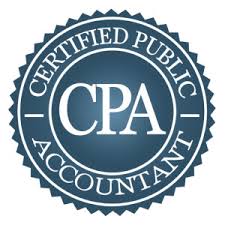 Signing up to sit for the CPA exam is a major milestone in your career. The long-term career benefits for earning a CPA license are clear. The Journal of Accountancy reports that newly minted CPA’s earn a $66,000 average salary and more experienced CPAs with 20 years of experience can earn up to $152,000.
Signing up to sit for the CPA exam is a major milestone in your career. The long-term career benefits for earning a CPA license are clear. The Journal of Accountancy reports that newly minted CPA’s earn a $66,000 average salary and more experienced CPAs with 20 years of experience can earn up to $152,000.
Accounting Certification News and CPA Strategy
Stay current with the latest accounting certification news and proven CPA strategies.
Posts about Become a CPA:
What I Would Have Done Differently to Study for the CPA Exam
 Earning your CPA license can give your career a jumpstart. You will gain a significant advantage over the other accountants who don’t possess this credential. According to the 2019 Robert Half Salary Guide for Accounting and Finance Professionals, the midpoint CPA salary for tax professionals with one to three years of experience is $57,500, with auditing experts making $52,000. As you climb the organizational ladder, you can expect to earn substantially more. At the level of Manager of Tax Services, you could be making $104,000 annually! At the upper end of the salary range, your yearly compensation could even be as much as $164,250.
Earning your CPA license can give your career a jumpstart. You will gain a significant advantage over the other accountants who don’t possess this credential. According to the 2019 Robert Half Salary Guide for Accounting and Finance Professionals, the midpoint CPA salary for tax professionals with one to three years of experience is $57,500, with auditing experts making $52,000. As you climb the organizational ladder, you can expect to earn substantially more. At the level of Manager of Tax Services, you could be making $104,000 annually! At the upper end of the salary range, your yearly compensation could even be as much as $164,250.
What is the CMA Exam?
 In the previous article on the CMA certification, we discussed the steps to become CMA certified such as fulfilling the examination, education, and experience requirements. In this article, let us take a closer look at the CMA exam itself, including exam specific content, recommended preparation time, sequence of taking the two parts, exam preparation strategies and so on.
In the previous article on the CMA certification, we discussed the steps to become CMA certified such as fulfilling the examination, education, and experience requirements. In this article, let us take a closer look at the CMA exam itself, including exam specific content, recommended preparation time, sequence of taking the two parts, exam preparation strategies and so on.
What You Need to Know About Earning Your CMA Certification
 In a previous article, we briefly introduced the other three major accounting certifications that can be added on to the CPA. In this article, we will focus on one of them: Certified Management Accountant (CMA).
In a previous article, we briefly introduced the other three major accounting certifications that can be added on to the CPA. In this article, we will focus on one of them: Certified Management Accountant (CMA).
Which Accounting License Should I Add to my CPA?
 The Certified Public Accountant (CPA) license is known as the most popular certification for accountants and has a reputation of the “gold standard” in the accounting industry. While many CPAs choose to practice in public accounting, a large number of them follow career paths in corporate accounting and other fields such as government, academia and the non-profit sector.
The Certified Public Accountant (CPA) license is known as the most popular certification for accountants and has a reputation of the “gold standard” in the accounting industry. While many CPAs choose to practice in public accounting, a large number of them follow career paths in corporate accounting and other fields such as government, academia and the non-profit sector.
CPA Tip of the Week: Becoming a CPA
 Just starting out on your path to becoming a Certified Public Accountant (CPA)? Unsure where to begin? One of the biggest decisions to make is the selection of a review course. Many people are familiar with Becker, Roger, Wiley CPAexcel, and Yaeger. There is also Surgent, Gleim, Kaplan, Ninja, Lambers, ExamMatrix, and more. With so many options available to a candidate, it may be difficult to determine what will work best. While some programs will boast about a high pass rate for its users, at the end of the day, the content provided is very similar --- is it simply delivered in varying formats.
Just starting out on your path to becoming a Certified Public Accountant (CPA)? Unsure where to begin? One of the biggest decisions to make is the selection of a review course. Many people are familiar with Becker, Roger, Wiley CPAexcel, and Yaeger. There is also Surgent, Gleim, Kaplan, Ninja, Lambers, ExamMatrix, and more. With so many options available to a candidate, it may be difficult to determine what will work best. While some programs will boast about a high pass rate for its users, at the end of the day, the content provided is very similar --- is it simply delivered in varying formats. 